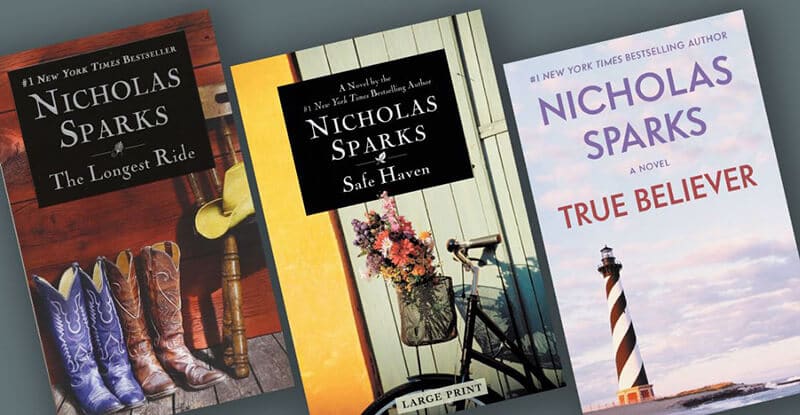Deb Olin Unferth’s strange and brilliant second novel is a caper story about a motley crew of lovable criminals banding together to pull off the biggest heist of their careers. All the familiar mechanics are in place: the plot that’s so crazy it just might work, the jaunty banter, the mishaps, love blossoming between two of the gang. We also get the stock characters: the spunky greenhorn with unorthodox ideas, the cantankerous old hand, the reluctant specialist who is tempted back for one last job. Here, though, the criminals are animal liberationists, and the heist is freeing 900,000 chickens from an industrial egg farm in the US. As the spunky greenhorn puts it: “All those birds. Missing. It’s wild, it’s disorienting, it’s beautiful.” The reluctant specialist retorts: “It’s impossible. Impossible to organise, impossible to get them out, impossible to find places to put them.” Then, of course, he helps.
If the book has a weakness, it’s in its relationship with the farming community in which it’s set. The idea of freeing the chickens comes from Janey, a disaffected, angry teenager with no history in animal rights activity and no particular affection for animals as far as we see. Her motivation is vaguely framed as rebellion, tinged by her contempt for small-town life in Iowa. Broadly speaking, the book seems to share that contempt, and its least appealing element is how it draws rural, working-class lives as one-dimensional, meaningless and devoid of emotional connection. People work at depressing, dead-end jobs, eat fast food and watch trash TV, and that’s all they ever do. Presumably, she’s trying to make the point that all life is turning into a battery farm experience, but since only the rural working-class characters get this treatment, it remains jarring.
The chicken-related writing, however, is a force unto itself. If you thought you didn’t care about chickens, Unferth is here to prove you wrong. Throughout, she makes us feel them as minds, as with the rescued hen who stubbornly insists on sitting on her egg, “because she’d never been able to sit on her eggs before and she wasn’t going to get up for anything … she was such an intelligent, unintelligent little birdie, thinking her job was to sit there, stay no matter what.” The meticulous, science-fictional descriptions of the alien atmosphere of factory farming are also astonishing. The thousands of tiered cages, miles of feed troughs, constant rains of dirt and faeces and hosts of cramped, debeaked birds – Unferth makes us see the barns as being the unfathomable horror that they are.
Perhaps from a fear of anthropomorphism, though, Unferth almost entirely forgoes making the chickens characters in their own right. We’re told the birds have names for each other, but none of them emerges as a personality; we’re told they are highly social creatures, but never see their relationships. None of the humans ever develops a bond with a particular chicken, either, so it’s hard to become emotionally invested in the heist’s success. The book’s realism also works against our caring: we’re repeatedly reminded that battery hens are unsuited to life outside and that, even as an act of public protest, their liberation is unlikely to change anything. It’s a tribute to Unferth’s charm that this never becomes depressing, and she even delivers a kind of happy ending.
She also shows a deep sensitivity and understanding for her animal liberationists, people who go undercover as farmworkers for years at a time to film the abuses inside egg farms – actions that, thanks to “ag-gag” laws, are often themselves crimes. Unferth does not sentimentalise these characters; she portrays them as the prickly, unsocialised types they often are, while also conveying their quiet heroism. In one passage, she shares their common fear that: “Soon all that will be left of the miracle of our planet will be the monocrops of damaged cows, pigs, dogs, hens, a few other practical species – and humans, horrible, unbeatable, disgusting humans.” In another, she describes the real sacrifices activists make: “When they finally quit and cut out, as almost all did … they had nothing: blank years on their resumes since what they did was strictly secret, no skills other than to perform jobs they’d spent their lives trying to abolish, alienated family, permanent back trouble.”
Ultimately, although the book is uneven, the things in Barn 8 that work are so aesthetically perfect and philosophically profound that it doesn’t matter much if the caper plot falls a little flat, or if its depiction of working-class life feels heavy-handed. It’s an enthralling book whose parts are more than the sum of its whole. Most of all, it’s marvellously effective in making us feel the crisis at its centre: the everyday torture of billions of animals in the service of a system that will ultimately destroy us all.
Barn 8 by Deb Olin Unferth is published by And Other Stories (RRP £9.99). To order a copy go to sachvui.co.




